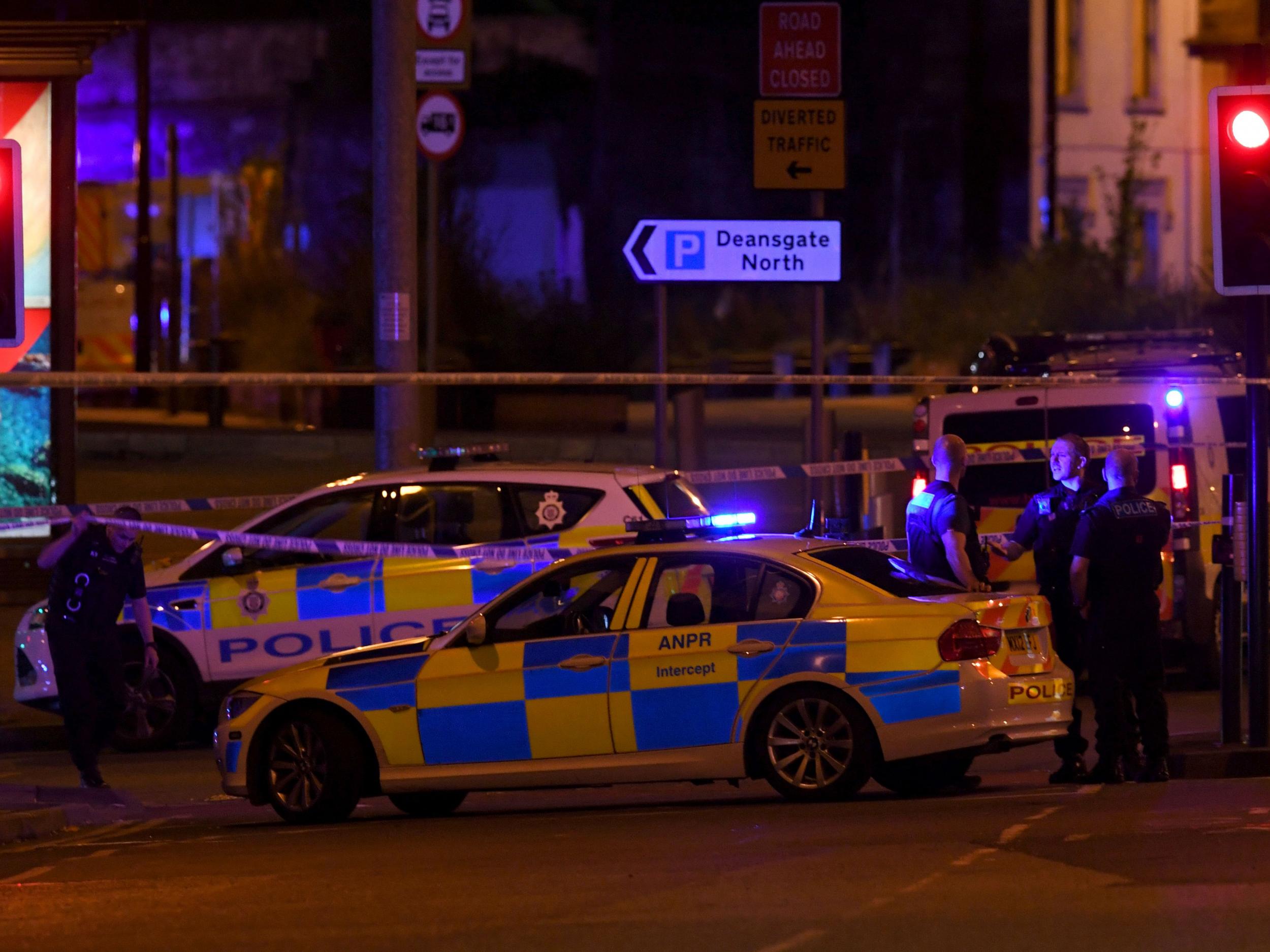The Kerslake Review into the Manchester Arena bombing suggests some journalists haven't learnt the most basic of lessons
On two occasions, it appears that reporters effectively informed young people that their relatives had died. Journalists were also said to have impersonated both the police and medical staff in an attempt to gain information


Your support helps us to tell the story
From reproductive rights to climate change to Big Tech, The Independent is on the ground when the story is developing. Whether it's investigating the financials of Elon Musk's pro-Trump PAC or producing our latest documentary, 'The A Word', which shines a light on the American women fighting for reproductive rights, we know how important it is to parse out the facts from the messaging.
At such a critical moment in US history, we need reporters on the ground. Your donation allows us to keep sending journalists to speak to both sides of the story.
The Independent is trusted by Americans across the entire political spectrum. And unlike many other quality news outlets, we choose not to lock Americans out of our reporting and analysis with paywalls. We believe quality journalism should be available to everyone, paid for by those who can afford it.
Your support makes all the difference.The conclusions of the Kerslake Review into the terror attack last year at the Manchester Arena make for grim reading.
Fire chiefs have taken the brunt of the criticism and it is their acknowledged failings that have dominated media headlines; rightly so.
While it will be for a coroner to determine whether the additional presence of first aid-trained firefighters at the scene would have saved lives, the delays that kept them away from the arena for two hours seem extraordinary.
However, the fire service was not the only group whose actions have come under the microscope. Lord Kerslake condemned the phone provider Vodafone, in relation to the “catastrophic failure” of a 0800 helpline which had been set up to provide anxious friends and relatives with information in the wake of the attack.
Less attention, however, appears to have been given to the report’s conclusions about elements within the media.
Kerslake and his panel were, they say, “shocked and dismayed” by accounts some families relayed to them about their dealings with journalists. Sure enough, some of the behaviour described by survivors and by victims’ families seems appalling.
On two occasions, it appears that reporters effectively informed young people that their relatives had died. Journalists were also said to have impersonated both the police and medical staff in an attempt to gain information.
While the local newspaper, the Manchester Evening News, was widely praised, some families clearly felt hounded by sections of the media. As one of those giving evidence to the panel put it: “By far the worst thing was the press.”
There is no doubt that the impact of the media is very much magnified in the aftermath of a disaster. Journalists tend to descend on the relevant location en masse, usually unaware of each other’s plans. A bereaved family who might be ready to speak to one reporter – or, for that matter, feel unconcerned at turning away just one journalist – can suddenly find that a new person from yet another media outlet is turning up every few hours to ask them the same question they have already declined to answer.
The “desist notice” mechanism operated by the Independent Press Standard Organisation (Ipso) can be helpful in diluting such harassment, which, while plainly upsetting, is largely inadvertent.
However, to hear that journalists were so desperate for details that they apparently impersonated nurses or police officers is like an echo from the dark days.
In the years after the Leveson Inquiry, it has genuinely felt as if the media has cleaned up its act. Yet the conclusions reached by the Kerslake Report throw that view into doubt, even though the specific circumstances of the cited examples remain unclear. For example, were these journalists identified? If so, what do they say in response to the accounts of their behaviour?
It is not to undermine the evidence heard by Kerslake to say that it would be useful to know more about these cases.
Among its recommendations, the report talks about the need for Ipso to introduce a new code to govern journalistic behaviour after such events as the Manchester bombing. It talks too about the importance of ensuring that Family Liaison Officers work more collaboratively with media regulators.
These are good and sensible ideas.
But surely no journalist worth their salt – worth anything at all in fact – needs a new code to tell them that impersonating a nurse or a cop isn’t on? That kind of behaviour is so far over the line, the line has – to quote Joey from Friends – become a dot.
The vast, vast majority of journalists are intensely hard-working and fundamentally decent people. There must be no place in the media for anyone who thinks that victims of terror attacks are fair game.
Join our commenting forum
Join thought-provoking conversations, follow other Independent readers and see their replies
Comments